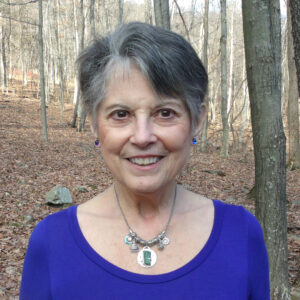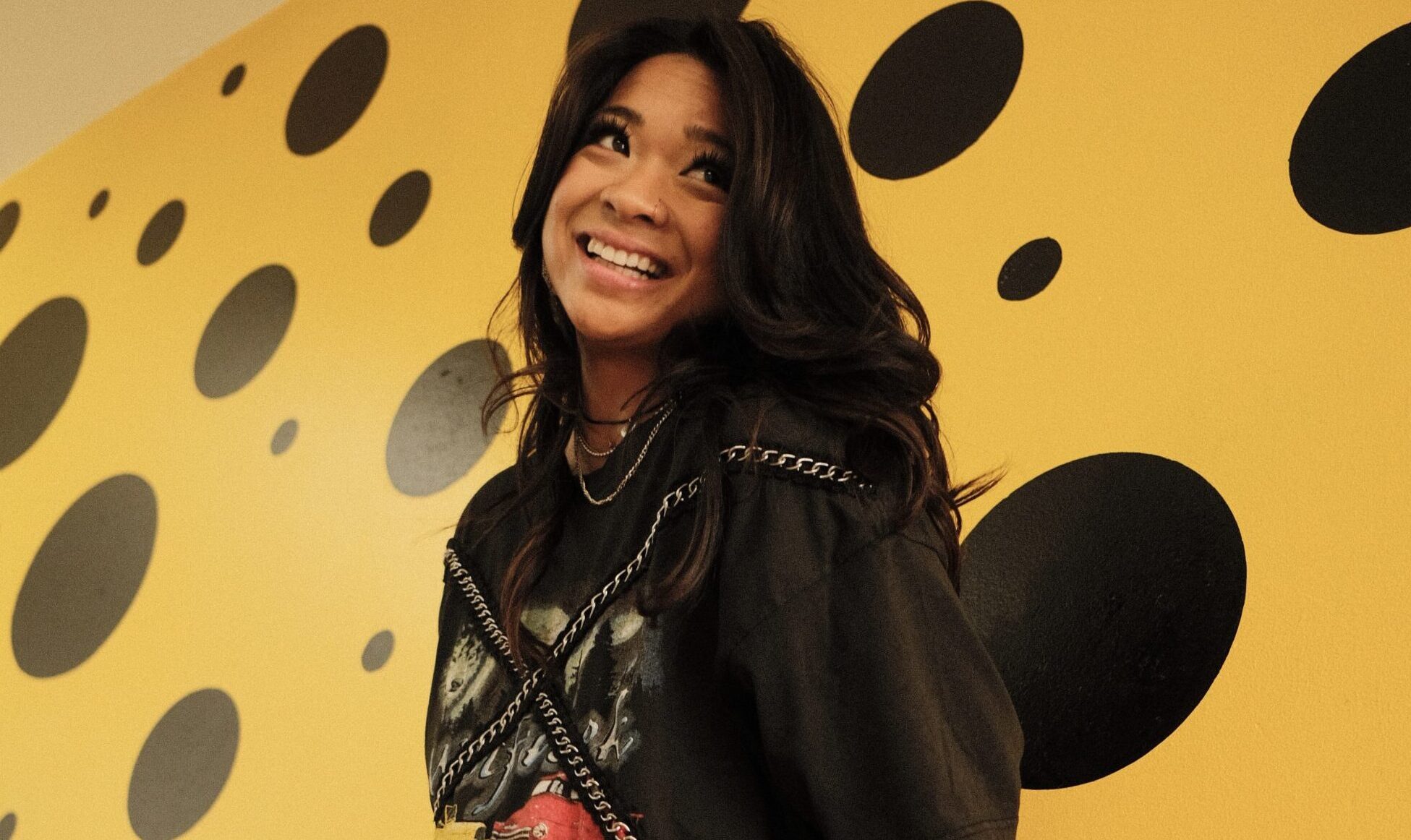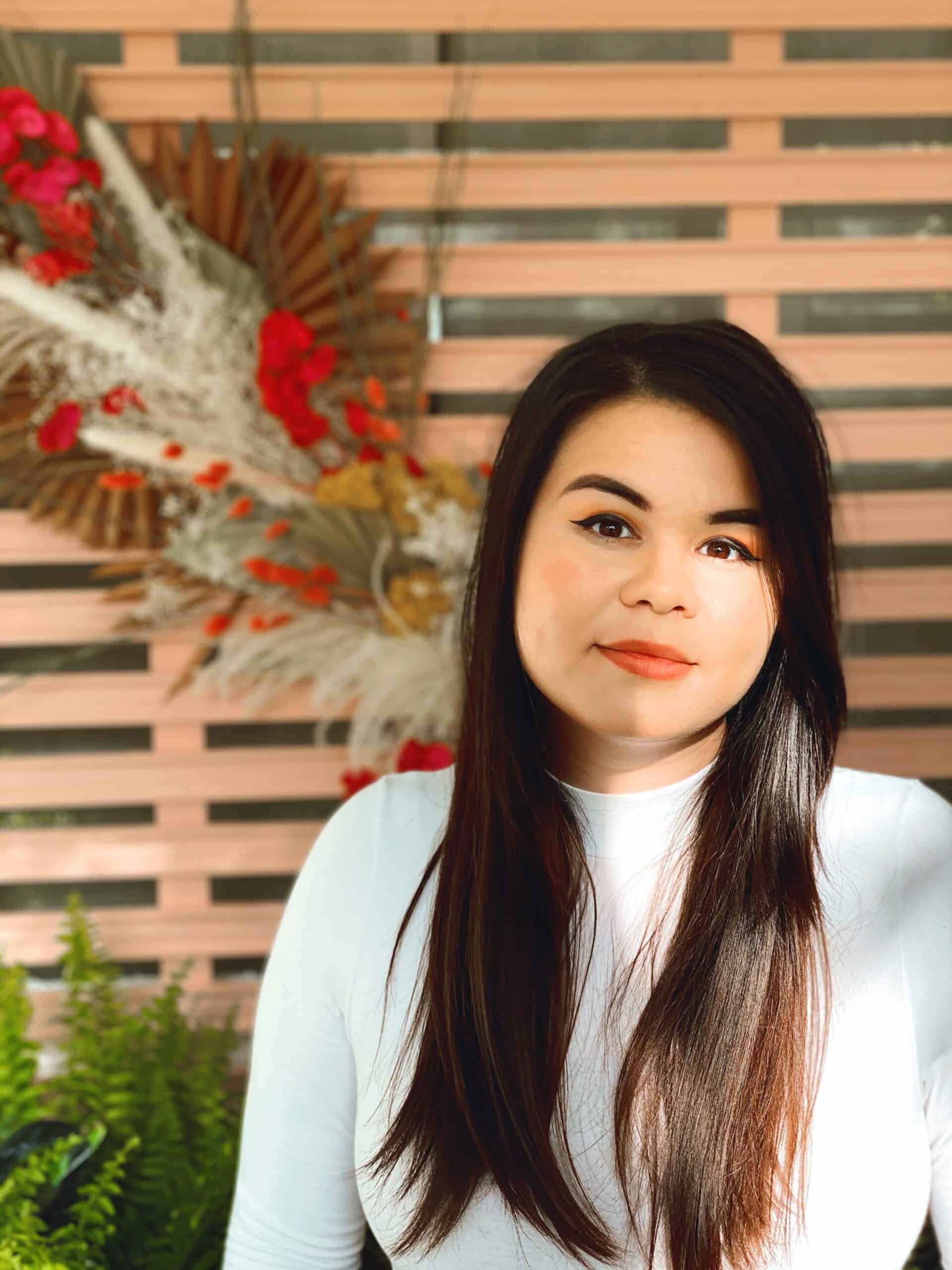In a world where cultural understanding and inclusivity are more important than ever, Mayra Gomez-Sanchez has turned her personal journey and passion into a powerful force for change. As the founder of Cultural Visionaries, she bridges gaps through her unique blend of social awareness and copywriting expertise. From her experiences growing up in a traditional Mexican household to her transformative college years and impactful teaching career, Mayra’s story is a testament to resilience, growth, and the unwavering belief in the power of words to bring people together. Her mission: to make marketing more inclusive and authentic, ensuring that every voice, especially those from marginalized communities, is heard and valued.
What inspired you to create Cultural Visionaries?
Throughout my life, I’ve come across inspirational leaders fighting to create positive change in their communities. I’ve also experienced being an “outsider” in social aspects because of how I look and talk.
Each end of the spectrum has made me realize the gap we have in building relationships with one another – and it comes down to culture – whether we want to see it or not.
In the world of marketing, especially in today’s diverse world – it’s vital that we close that cultural gap so BIPOC leaders fighting to create positive change AND non-BIPOC leaders wanting to understand how to connect with the diverse community, can come together and make marketing feel inclusive for everyone.
Marketing is more important than we may put thought into. Think about it. Everyone is online and follows behaviors based on what they read, see, and hear. If we make conscious decisions about how and what is being put out to the world, we have a better chance at influencing the minds of others in seeing each other in the best light – while still selling our products and services in an authentic way.
There’s so many visionaries out there.
I wanted to add my social awareness into the mix with the copy I write – leading to my creation of Cultural Visionaries.

Can you share a bit about your personal story and how it influenced your work?
Of course! I’ve always been socially aware and I think it comes from my upbringing. I grew up in a traditional Mexican household as the eldest of two daughters. I’m second-generation culturally, and first-generation in higher education.
Growing up, we spoke English and Spanish, though my Spanish was always on the “pocha” side (a degrading term used by many Latin American communities when someone does not speak Spanish fluently).
I felt ashamed for not knowing it “well” enough, but also felt not as Americanized because I couldn’t relate to social dynamics seen on t.v.
It was like I was stuck in two worlds – and I wasn’t a part of either of them.
Seeking some form of identity, I made an effort to be closer to my roots in college. I didn’t have the resources or tools to “succeed” once I got there, but I did have the ánimo (spirit) to look for it.
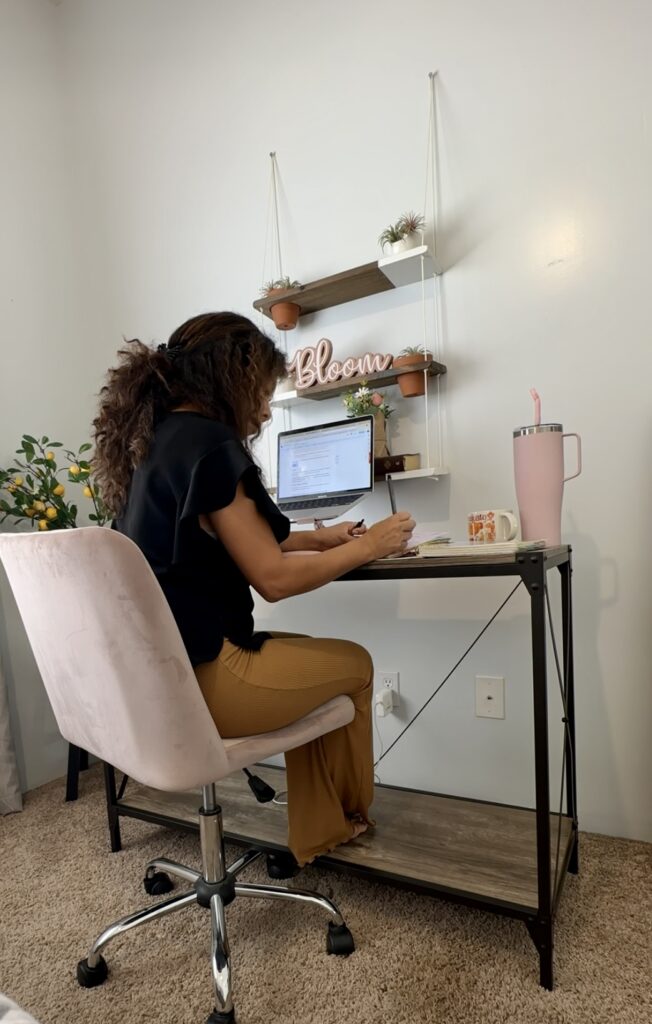
I did that by doing three things:
- Educational resources – I joined S.T.E.P (summer transitional enrichment program) at UC Santa Barbara and took classes, met other first generation college students, and interacted with BIPOC counselors. It was so nice to meet others who went through similar experiences – plus speaking to the counselors gave me hope that I could stay in college. I stayed in touch with them so much that by my senior year I became a mentor for the Education Opportunity Program and co-led events for the Asian Resource Center.
- Social resources – I joined a multicultural sorority, Sigma Lambda Gamma, and met other empowered females from all walks of life. One of the 5 pillars that stood out to me was cultural awareness because I’ve never seen a sorority put so much focus on learning about other people’s cultures! It gave me more perspective in my sisters’ experiences, widening my view of the world as I initially saw it.
- Sociology courses – These experiences took me on the path of taking sociology courses, which eventually led me to majoring in it. I learned so much about the behavior of humans and institutions, that it forged a path to my first career after college – being an elementary teacher.
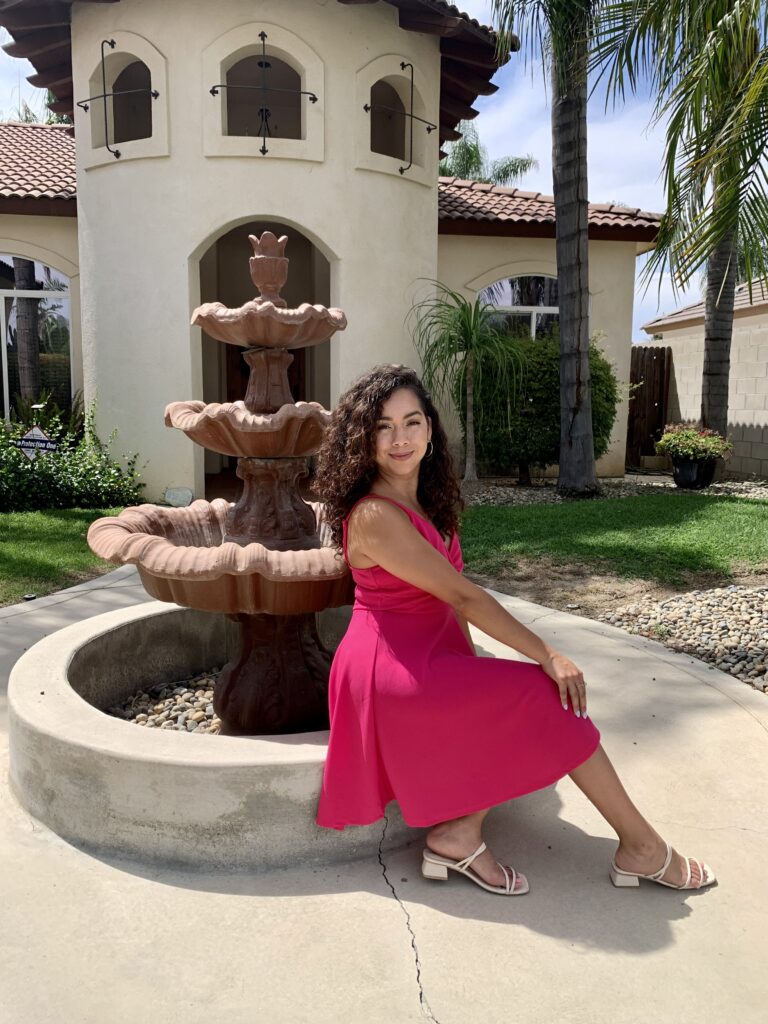
As an elementary teacher, I taught in the wealthy and not so wealthy zip codes. The differences were immediately apparent. One side had the high end tech and books, above grade level students, and interactive parents who chose the times they worked – or didn’t work at all. The other side barely had enough money to give students pencils, most kids were below grade level, and parents were difficult to contact because they were working day and night.
It hurt my heart that I could only do so much – and it hurt more to see how a zip code made all the difference in a child’s educational experience.
As much as I loved the students, the institution was far greater than me (for now), and my mental health dwindled. It got to the point that I had to put myself first and step away from teaching so that I could help myself get back to me.
It was one of the hardest decisions I’ve ever made, but it led me to a new phase of my life – helping to close the gaps to everything I’ve experienced up to this point.
When I decided to get into copywriting, I knew that my unique selling proposition would be based on diversity. From my upbringing, to college, to being a teacher, there was a theme – sociocultural and economic divides. Not enough people were willing to listen and learn from one another, not enough people experiencing being an “outsider” were talking, there just wasn’t enough people.
So that’s why I chose to make sure my copywriting business was based on bringing people of sociocultural and economic differences together through the power of impactful words.
And what better way to do that on a larger scale than through marketing!
My copy has become a ripple effect in helping business owners, their audience, and their audience’s audience see themselves in services and products. My hope is that it reaches such a large scale that eventually my words can come across large corporations and politicians in aiding to the inequality we still see today.
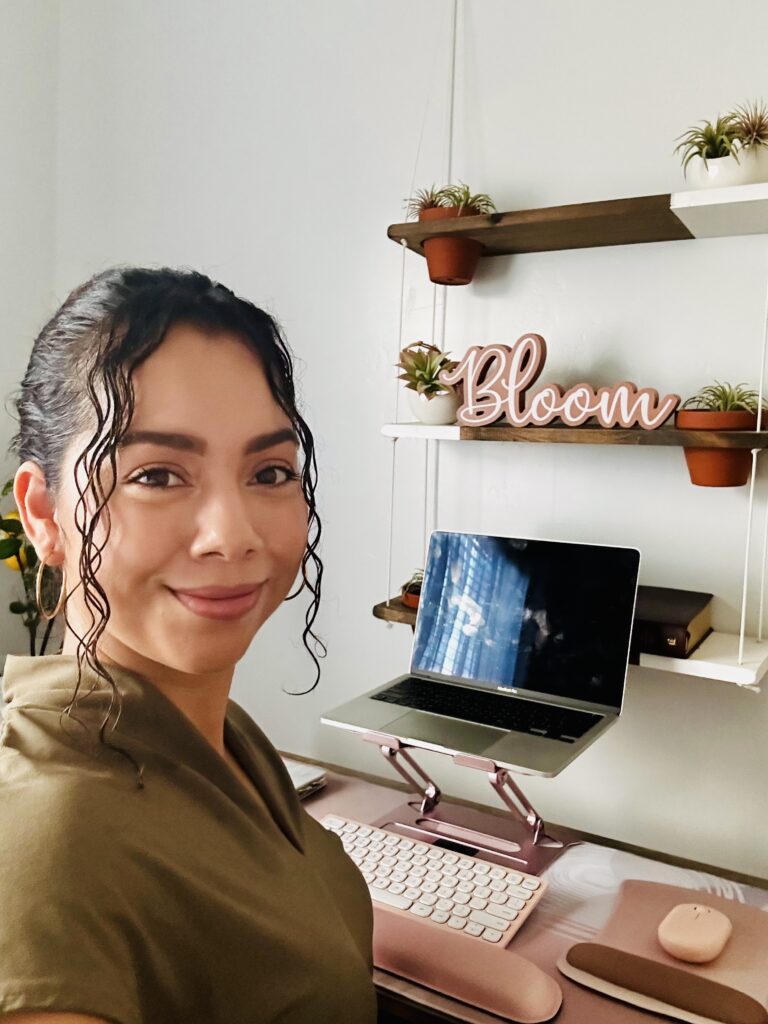
What were some of the challenges or struggles you faced in establishing Cultural Visionaries?
My mindset was probably the biggest challenge I’ve faced in establishing my copywriting business.
For 29 years of my life I thought adulthood meant:
1. Go to college
2. Get a job
3. Do that job until I’m 65
4. Retire
I did numbers 1-3 for the first decade of adulthood only to realize I was unhappy, unmotivated, and uninspired.
Basically, I felt stuck and thought, “Is this it?”
The subconscious thought I put on myself went along the lines of, “Once you get into a career, you need to stick with it forever. If you don’t, you fail.”
I don’t know where that thought stemmed from, but it literally drove me to the ground.
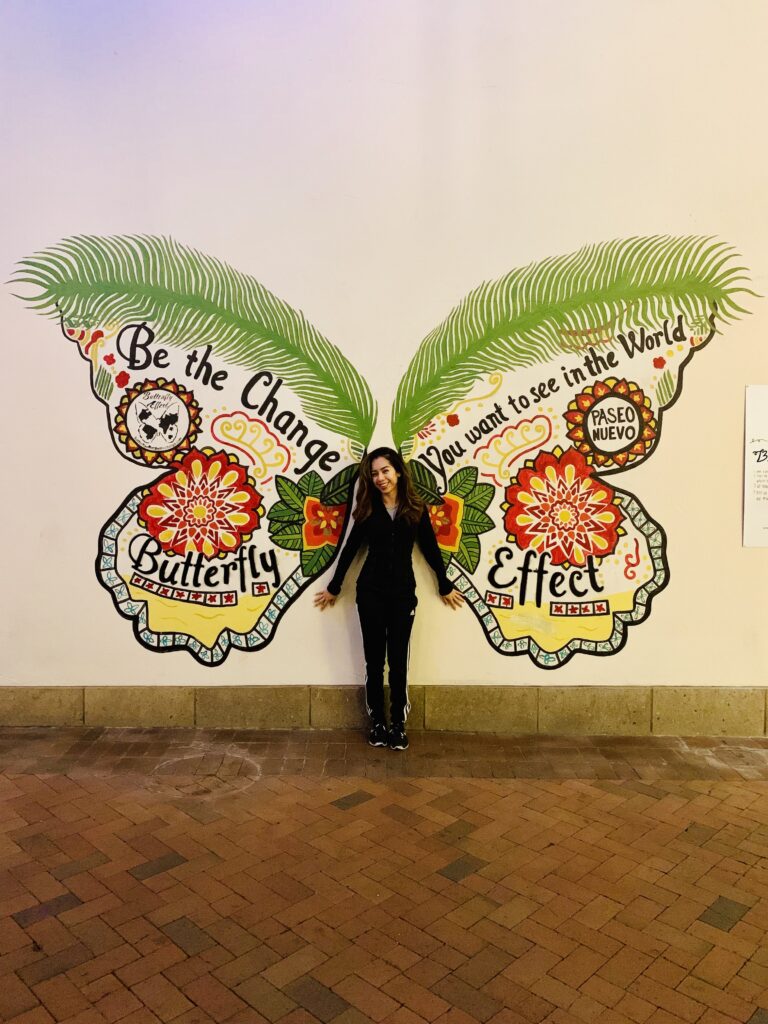
I also thought that if I became a business owner, it would make me selfish and greedy. Coming from generations of scarcity, it was only common to have this way of thinking too. But it’s not my family’s fault. They did everything right in making sure we had what we needed. I’m beyond grateful. But I also see that I’m on a different playing field and should take that to my advantage — not only for myself, but to give back to my familia as well.
On the topic of money mindset, I believed that if I attempted to learn something new outside of my craft, it would lead to more never-ending debt. My anxiety used to tell me “Do what’s comfortable and you’ll be safe.” But safety wasn’t taking me where I wanted to be. Investing in being a copywriter has made me create income I never thought I could gain AND led to a better version of myself.
After some mindset work and surrounding myself with other entrepreneurs, I finally turned a page and tuned into the small spark of curiosity that lingered in my mind…
“But what if I did it anyway?“
And here we are.
Today I sit at my wooden kitchen table, looking out my window to feel the warm sun shining down on my face.
It’s quiet, comfortable, and peaceful.
It’s not always like this though. There’s a roller coaster of emotions on the backend – to say I wasn’t stressed today would be a lie.
But thankfully, I’ve been overcoming these mental blocks by surrounding myself with fierce change makers who’ve been amazing at sharing resources for continued growth on this journey.
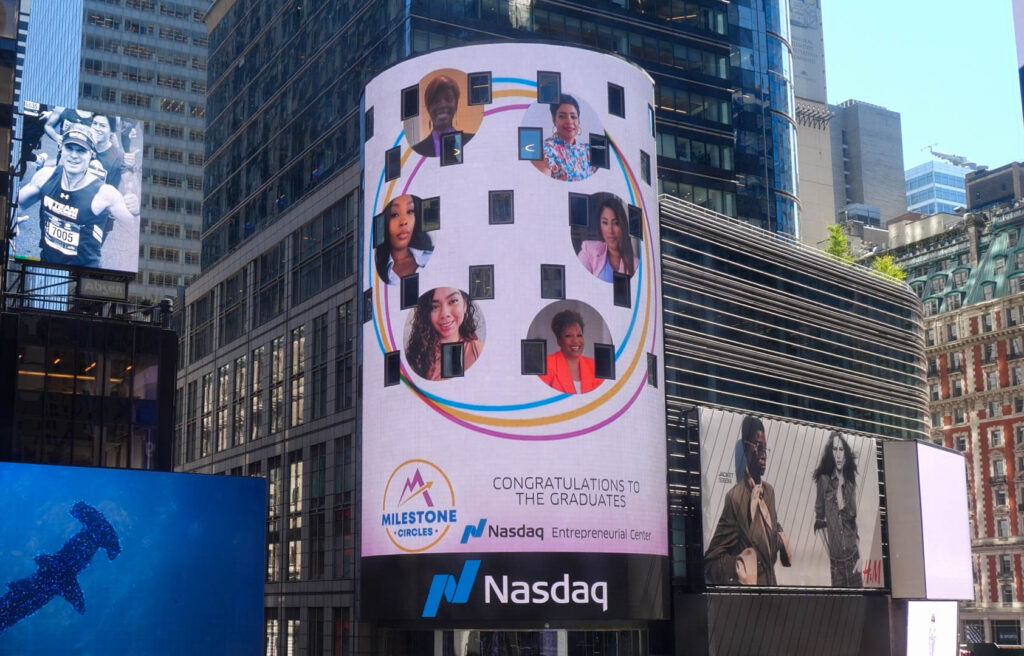
Some of these resources look like:
Trademarking ™️ – Don’t even get me started on the legal side of running a business. I linked with @legalmiga – thanks to the power of Instagram connections – Cultural Visionaries is in process for trademarking.
Accessing Capital – Dinero/ money. We all need it, but how do we get it? It’s been so great being part of @nasdaqcenter and @entreprenistas . Through these memberships, I’ve been able to participate in powerful workshops geared towards pitching and grant application procedures.
Quarterly Goal Planning – What a difference it makes and creating attainable and measurable goals every three months! Thanks to @kristin.macintyre I’ve learned about:
Locating my north star
Checking in with my feelings
Identifying my goals, projects, and tasks
Charting these goals, using the project priority matrix
On this journey I’ve learned that when you treat people well, are willing to learn, and give yourself grace on those extra hard days, you will make it. You just need to have patience and a little bit of faith. But trust me, I still practice this daily.
What advice would you give to other women looking to start their own businesses or creative projects?
I would say to start reaching out to your network of people in your niche and be ready to learn from them. This can look like a coffee chat in person or online where you ask them questions about how they got started and what steps they took to get to where they are now.
I’d also create a spreadsheet of the people you’ve had chats with and take down any notes or resources that you find helpful and check those resources out!
The takeaway here is to never stop asking questions.
How do you balance your personal life with running Cultural Visionaries?
I like schedules because they keep me sane. What I like to do is create “tasks” on my Google Calendar and type in movement breaks in between work to avoid fatigue. Google calendar will notify me 10 minutes before my next task to “talk a walk, go to the gym, or stretch.”
I also like to end at a certain time everyday and make any notes of what didn’t get finished to start with the next day.
Once I close that laptop I take my dog, Coco, to the neighborhood park where my neighbors and their dogs meet up daily. It’s so nice to get some fresh air, sunshine, and see all the pups play together!
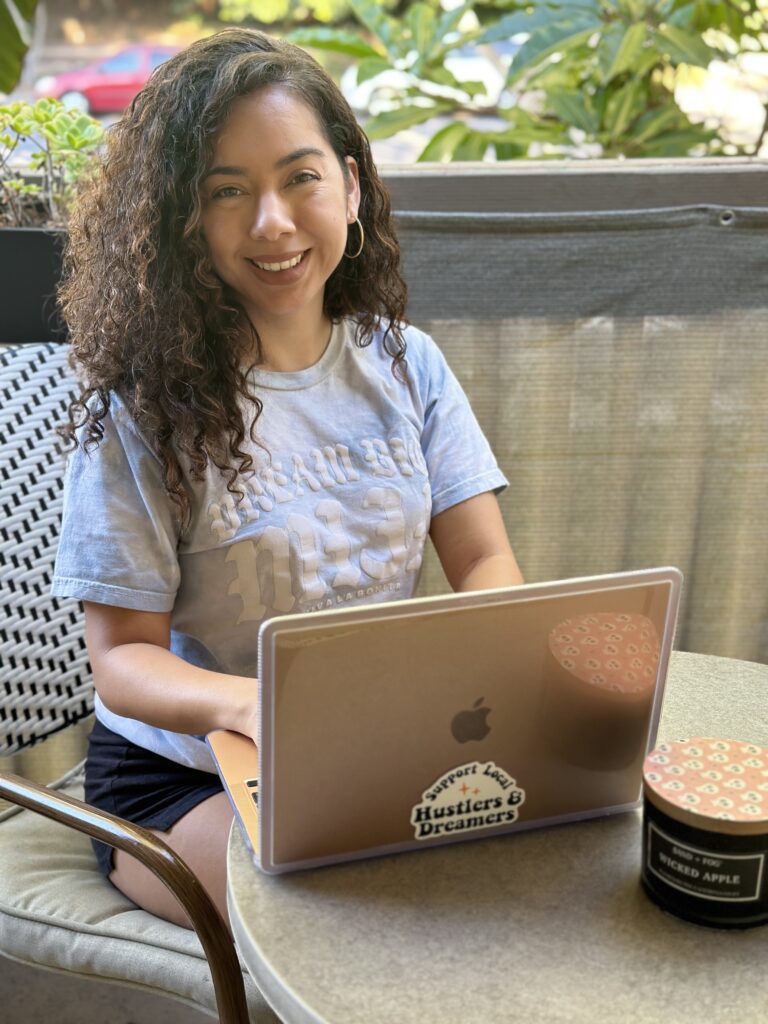
Can you share a memorable success story or achievement related to your work with Cultural Visionaries?
YES! Through consistent networking, I was able to be part of the Nasdaq Entrepreneurial Center Milestone Circles Program where I joined other female founders in a 3 month biweekly series on setting the foundation to our businesses. My graduation from the program allowed me to be featured in Times Square. I never thought I’d ever be on those big screens so to see my face up there with other change makers really made me proud.
What impact do you hope Cultural Visionaries will have on diverse communities and the media?
My hope is that Cultural Visionaris becomes the go-to multicultural copywriting agency where business owners from all walks of life can feel comfortable coming to for authentic copy. By utilizing my agency, and the social awareness it upholds, I hope marketing can feel more inclusive to the diverse public – making them want to be part of today’s socially conscious brands. I also hope the media takes note of the positive change happening in marketing and showcases it for the world to see so that we can continue the ripple effect of growth in closing the cultural gap.
How do you stay motivated and inspired in your work?
I stay motivated and inspired by continuing to surround myself with entrepreneurs wanting to create products or services that bring people some form of happiness. Their passion shines through when I speak to them, which then gives me passion to keep going.
What strategies do you use to promote diversity and inclusion within your business?
In order to promote diversity and inclusion in my copywriting business, I try to be mindful of making inclusive content. That means I’m aware that when I use images and visuals on my social platforms, they accurately reflect diverse groups. I’m also constantly thinking about my use of inclusive language. I do my best to avoid stereotypes and use language that is respectful. When writing, I’m mindful of cultural differences and create content that respects and acknowledges the wide range of people coming from various socioeconomic backgrounds.
How do you see the future of Cultural Visionaries evolving, and what are your goals for its growth?
I see Cultural Visionaries gaining more BIPOC copywriters in the next 2-5 years. With more BIPOC copywriters, there will be more culturally aware storytellers ready to tell the story of various brands and businesses on a larger scale. I can’t wait for more businesses to share their voice with Cultural Visionaries and reach more of the diverse public.
What role do you believe storytelling plays in shaping perceptions and breaking stereotypes?
Authentic storytelling allows us to humanize experiences. When done right, you can personally connect with your audience and truly see them as an individual rather than a stereotype. Including emotion within the story also helps in creating a deeper understanding and empathy for those who’ve experienced situations or perspectives different from ourselves. It’s with storytelling from marginalized voices that we can provide a platform for others to share their experiences, leading to more visibility and understanding from society as a whole. Amplifying these voices are what can challenge mainstream narratives in marketing.
How can individuals support or get involved with the mission of Cultural Visionaries?
You can spread the word of my mission by sharing this interview on your social platforms and email lists, following me on Instagram @cultural_visionaries_, LinkedIn (Mayra Gomez – Sanchez), and joining my email list via my website: mayragsanchezagency.com. You’ll get a free launch checklist when you become part of my email community, get tips on business and copy, and no spam!
LinkedIn: https://www.linkedin.com/in/mayra-gomez-sanchez-copywriter-marketingstrategist/
Website: https://www.mayragsanchezagency.com/



